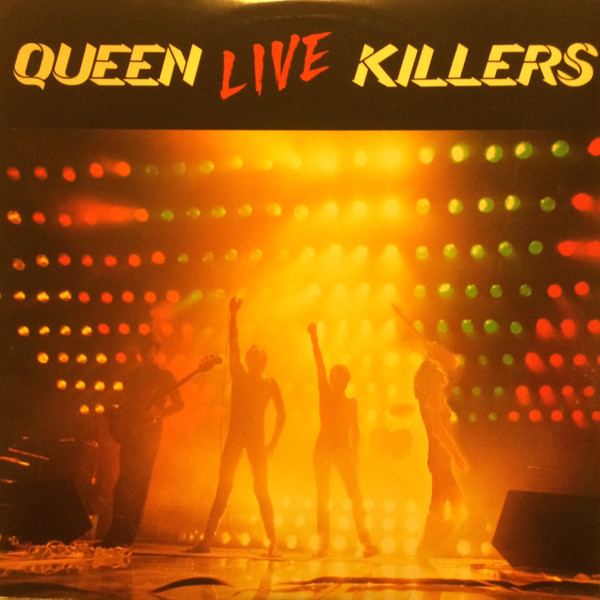Live Killers found Queen at a fascinating crossroads. Over the course of seven studio albums they had established themselves as an arena filling colossus with a sound which had started out as stodgy prog rock, before applying the glitter, shedding their less dynamic sensibilities, and morphing into one of the finest classic rock acts ever.
When Live Killers was first released in 1979 the cracks were starting to show. 1977’s News of the World had seen Queen try and diversify their sound to mixed success, but 1978’s Jazz had been a clumsy display of their worst excesses hiding behind a double A side single of questionable taste at the time (and distinctly un-PC now), and a song which is admittedly easily one of the best of their entire career. On top of all this, they were swimming against the tidal wave of Punk, and their relationship with the music press had gone from distrustful, to just pretty damn nasty.
In retrospect Live Killers was a much needed filler release which allowed Mercury, May, Deacon and Taylor more time to consider their next move. Having said that, every rock band worth their salt released a live multi-disc album during the 70s, but these could range from the brilliant (Jethro Tull’s Live: Bursting Out), the baffling (Led Zeppelin’s The Song Remains the Same) and the truly awful (Yessongs), so it was only natural that Queen would want to release a live document of their not inconsiderable stage presence to prove that they weren’t just a studio phenomenon. The fact that it gave them a breather at exactly the moment they needed to re-evaluate their creative direction was probably just good timing. Probably.
If anything, Live Killers falls short of being the live Queen recording that would silence the doubters. After all, it was rock’s dinosaurs that had released all those live albums in the previous decade, also, there are moments where it falls prey to the live rock tropes of the era, such as the unnecessary drum solo, and others where the song itself just fails to hit the spot, with “Bohemian Rhapsody” sounding oddly disconnected due to the necessary technological jiggery pokery to deliver its much famed choral middle section to the live audience, and “Don’t Stop Me Now”, one of Queen’s fried gold numbers somehow failing to hit the spot.
The fact that Queen were promoting the disappointing Jazz on this tour means that there are more numbers from that album than is strictly necessary, which means that the listener is left to ponder the fact that a song titled “Let Me Entertain You” inevitably leads you to decline that request, and that this live version of “Bohemian Rhapsody” is further hampered by the awful “Mustapha” intro (how culturally clumsy does that sound 40 years later?). Oh, and while I’m sticking the boot in, I’ve never really been a fan of Roger Taylor’s drumming either.
For all its failings though, Live Killers proves that Queen deserved their place at rock’s top table. King Fred is imperious throughout, from his peerless crowd connection, to the audible delight when he parks himself behind the piano for a number (something that would happen less and less from this point in Queen’s career), and the fact that almost no one in the history of popular song could match him for sheer oversized charisma on the live stage. Oh, and Brian May’s guitar sound is one of the most instantly recognisable in rock.
Ultimately Live Killers achieved what it needed to achieve for Queen. Their next album would see them harness their pop smarts to such an extent that they would manage to temporarily crack the hitherto resistant American market, graduating from arenas to stadiums as they did so. Though John Deacon’s funk stylings of “Another One Bites the Dust” would eventually lead them down the cul-de-sac that had nothing but Hot Space at the end. Still, they managed to rebound from this to conquer the singles charts, conquer Live Aid, and show exactly how a stadium rock tour should be done, putting their career best live album in the can as they did so.
Live Killers may not be a vital part of the Queen back catalog, but it bought them enough time to ensure that they were immune to Punk and a hostile press, so it did all it needed to do in that sense.














No Comment